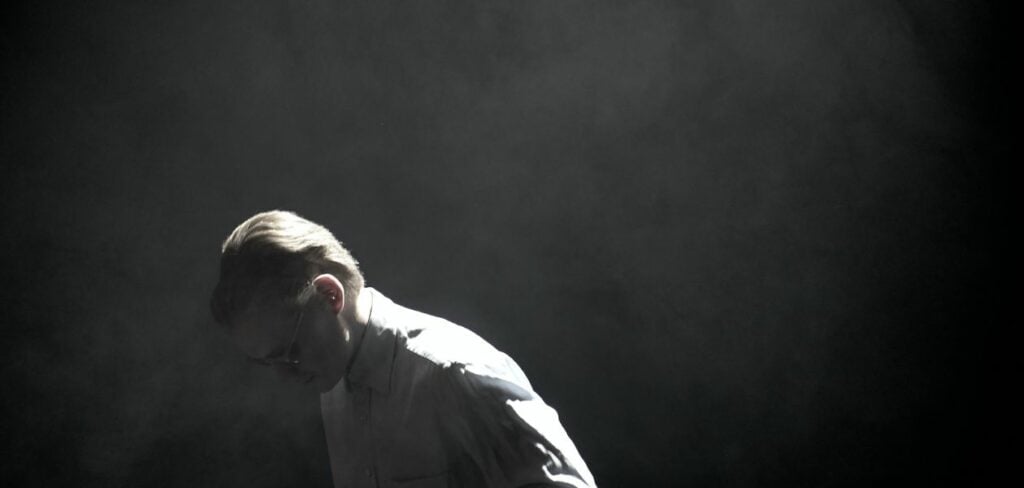
Mental Health for Actors
Physical and mental health affect our sense of wellbeing, and our wellbeing affects our physical and mental health for work. Health and wellbeing are holistic aspects of a person’s lifestyle–they affect how we feel and what we feel capable of doing. Let’s look at some key terms before learning what you can do to protect and even enhance your mental health as an actor.
“Health” (WHO definition)
Health is all about a state of complete physical, mental and social well-being. It’s not only the absence of disease or some other illness, it’s how you feel day-to-day and what you can do to maximise feeling as good as you possibly can.
“Mental Health” (WHO definition)
Mental health is a state of well-being in which you are able to realise your own potential, that you can cope with the normal stresses of life (including experiences of happiness and sadness), that you can work productively and fruitfully and that you are able to make a contribution to your valued community.

So, what is well-being?
Well-being integrates mental health (mind) and physical health (body), resulting in more holistic approaches to disease prevention and health promotion. As a starting point, well-being includes the frequent presence of positive emotions and moods (e.g., contentment, happiness), the minimal presence of negative moods (e.g., depression, anxiety), a sense of satisfaction with life, a sense of fulfilment and a capacity for positive functioning.
In the creative industries, what is most arguably recognised as ‘good acting’ is an actor’s capacity for vulnerability—which I define as “the ability to affect and be affected by the other”. Such capacities for sensitivity and empathy enable an actor to create ‘life-like’ characters that connect with audiences. However, such sensitivity and empathy can become overwhelming resulting in unnecessary mental distress and fatigue
How and when do actors need to take care for their mental health and holistic well-being?
In bringing clarity to an actor’s professional preparation and practice, I have found performance scholar Richard Schechner‘s (1985) categorisation of the different stages of a performance process as a useful framework within which to identify health and wellbeing factors in the actor’s core practice of creating characters.
These stages consist of:
- Training.
- Workshop (which can include auditioning).
- Rehearsal.
- Warm-up.
- Performance.
- Cool-down.
- Aftermath.
I’ll go through each stage and identify some potential mental health challenges and suggest some short-term strategies to support mental health.
PLEASE NOTE: the following are broad guidelines and may not be able to support your specific, individual work-life and well-being challenges and circumstances. Do not hesitate to seek assistance from your local General Practitioner, or an experienced psychologist or psychiatrist that works with creatives. You’ll find a very helpful list of these professionals either through Equity (if you are a member, you can access the list of contacts from the Equity Wellness Committee.)
If you’re an Australia-based performer, there is free access to similar professionals in your State or Territory through the Australian Society for Performing Arts Healthcare (ASPAH) directory of practitioners.
1. Training
American actor-training researcher Dr Susan Burgoyne (PhD) and her colleagues have highlighted some acting teachers’ lack of experience in recognising and promoting psychological wellbeing: “ [w]hen this process is activated negatively, the actor’s personal life may supplant the character in performance, leading the actor to lose control onstage. Conversely, the actor’s character may take over offstage, with the actor carrying over character behavior into everyday life. A consequence of both processes may be emotional distress.” (Burgoyne et al. 1999, 11).
This potential for personal distress was linked to actual methods of actor training in Dr Cheryl McFarren’s (PhD) 2003 doctoral thesis. Setting out from her own traumatising audition experience, McFarren interrogates the wisdom and ethics of training techniques that intentionally enable students (consciously or unconsciously) to tap into trauma as a resource for the development and enactment of character.
She highlights the fact that most acting teachers are neither trained, nor necessarily equipped, to recognise hyper-arousal (intense feeling states) and dissociative responses (wanting to ‘shut-down’, ‘escape’, or ‘numb’ the discomfort/distress) in students, or to help process traumatic experiences so that these do not leave a harmful residue.
ACTION STEP:
If you have experienced such distress or trauma, then this is where you should seek out professional, therapeutic support for a qualified psychologist or psychiatrist, particularly someone who has an appreciation of what it means to be a vulnerable, creative performer. REMEMBER you are not being ‘difficult’–such distress may be affecting your everyday life and relationships, so it’s worth attending to and practicing your own self-care.
2. Workshop

The opportunity for actors to create work comes usually through the often anxious process of audition. Although the audition is the gateway to a process of creative exploration, rehearsal and consequent performance, as an auditionee, you are frequently expected to deliver a depth of engagement in a role without the ‘safety net’ of exploration and rehearsal through trial and error. The Australian Actors Wellbeing Study (of which I was a co-researcher) found that auditioning was the third most frequently identified stressor (after professional and financial uncertainty).
Recognised stresses around the procedure of auditioning include:
- Securing the audition.
- Doing the audition.
- Waiting for a possible call-back.
- Waiting for a final decision.
- Dealing with frequent rejection.
As a result, it’s not uncommon to experience cumulative anxiety (where you feel constantly on edge, uncertain about your immediate future plans and actions), diminishing self-esteem (when you experience frequent rejection, or worse still, no response) and subsequent depression (where you feel ‘shut-down’ in your feelings and lacking motivation to do everyday things that would normally give you pleasure or a sense of connection to others).
ACTION STEPS:
If your self-esteem is being worn down, it could be helpful to seek out a creative careers coach or counsellor who can help you identify and review your unique core values and capacities, so that you don’t become defeated by external, and ultimately subjective judgements and industry expectations that you have no control over.
Anxiety is produced by multiple causes. It is expressed by a diverse set of symptoms. These symptoms include physical, emotional, behavioural, and cognitive components. This is why we can ask many different people about a very common experience; yet, get totally different definitions of what it means to be anxious. If you are feeling more frequently (and understandably) anxious as you continually put yourself ‘out there’ to try and get acting work (or any work), then it would be wise to seek out professional support from a psychologist or psychiatrist.
In the short term, you may find some useful advice in the following video from Dr David Purrs. He describes the ‘Five Doors to Anxiety’ and suggests that a person must have passed through at least one of these doors to be in a more anxious state. However, he reminds us that if you can go one way through a door you can reverse your journey.
Depression is more than just a low mood – it’s a serious condition that has an impact on both physical and mental health. Depression affects how you feel about yourself. You may lose interest in work, hobbies and doing things you normally enjoy. You may lack energy, have difficulty sleeping or sleep more than usual. Some people feel anxious or irritable and find it hard to concentrate.
BUT the good news is, just like a physical illness, depression is treatable, and effective treatments are available. The following video, produced by the Black Dog Institute, may be helpful for you to begin to understand what depression feels like—as distinct from feeling sad or a bit down.
A person may be depressed if they have felt sad, down or miserable most of the time for more than two weeks and/or has lost interest or pleasure in usual activities. They may also have experienced several of the signs and symptoms across at least three categories. It’s important to note that everyone experiences some of these symptoms from time to time, and it may not necessarily mean a person is depressed. Equally, not every person who is experiencing depression will have all of these symptoms.
The symptoms will not provide a diagnosis–for that you need to see a health professional–but they can be used as a guide. In this case, get the support of a friend and do first seek out your General Practitioner to do a professional diagnosis. That GP can then refer you to an appropriate health professional to help you with that depression experience.
3. Rehearsal (and 5. Performance)
Once you’re through the audition, you will probably invest yourself not only in the formal period of rehearsal, but your own uniquely personal practice of creating a character and bringing that to the performance process. You may also find yourself becoming more shaped by/instinctive about the ‘world-view/life experience’ of the role outside of formal rehearsal times.
When this happens, some actors tend to isolate themselves from their everyday relationships and commitments in order to ‘find the truth’ of the character. But unless those outside the production know this is happening, they may feel ignored and neglected.
ACTION STEP:
When you begin preparations for the role/character, let the significant others in your life know what you’re working on so they can be supportive. However, also allow them ways that they can gently remind you of who you are in your everyday life when they feel you becoming pre-occupied and distant in your process of character creation. Having these conversations BEFORE and DURING the rehearsal and production periods will allow everyone to feel heard and understood.
4. Warm-up

Warm-up habits are a key strategy to minimise potential injuries as well as maximise performance quality. The Actors Wellbeing Study found that the vocal warm-up is the most common warm-up practice, with physical warm-up a close second. The next most significant warm-up cluster of practices include various approaches to focus, relaxation, and meditation.
However, you don’t want to be so relaxed that you aren’t energised and focussed on delivering your best performance. It’s a balance of ease and readiness you want to practice during the rehearsal period so that you’re familiar with the sense of it in performance. The fourth significant warm-up category is that of role preparation, comprising practices ranging from line runs, to the repetition of psychological gesture (a practice developed by Michael Chekhov), to various sense memory exercises.
ACTION STEP:
If you find yourself having difficulty ‘letting go’ and then ‘picking up’ the character or role, then it’s a good time to develop some simple, repeatable ‘rituals’ and ‘warmups’/’cool-downs’. This will help you physically, mentally and emotionally ‘shed the character’ to an extent where you can function as ‘you’ in the everyday of life.
Consider having a regular physical warm-up routine and combine that with appropriate instrumental music as an added stimulus/association with the energetic qualities of the role you are preparing for. Then you can also bring that focus and activation of character for the performance context.
6. Cool-down
In most cases actors, are not trained in how to ‘cool down’ and ‘let go’ after each performance as they attempt to live their everyday lives between shows or shooting days. While actors, in our Wellbeing survey, overwhelmingly identified physical and vocal preparation as part of their warm-up, very few referred to such practices in moving out of performance: only a small percentage explicitly described a regular physical or vocal cool-down. Similarly, only a small percentage made mention of character debriefing (how to de-role and get out of character.)
By contrast, just over half of the surveyed actors made mention of an alcoholic beverage as a usual part of their cool-down. This was often accompanied by the next most common cool-down practice: post-performance social interactions with either cast or with members of the audience, friends or family. While drinking and socialising were often acknowledged as concurrent post-performance activities, consumption of alcohol was sometimes a solitary affair.
This predominance of alcohol consumption as part of the cool-down process is disconcerting, given that the Actors Wellbeing Study found that actors are using alcohol at levels well above the World Health Organisation guidelines for healthy consumption. This finding is also consistent with actors’ reports of their reliance on alcohol as a means to both ‘cool down’ after performance, and to cope with the more acute effects of demanding roles.
In addition, the Study found that about 80 per cent of the actors were active users of either legal or illegal drugs. This use of substances was also reported in response to work-related problems as a performer such as financial stress, ‘stage fright’, bullying and harassment: 98 respondents reported using prescribed anti-depressants; 65 used prescribed anti-anxiety drugs; 140 used other legal substances; 87 used marijuana; and 53 used other illegal drugs. This suggests, perhaps, that actors actively self-medicate in response to both the general, long-term pressures of their work and lives, and the acute burdens of demanding roles.
ACTION STEP:
If you find yourself having difficulty keeping to moderate alcohol consumption, or find you are becoming overly dependent on substances (legal or illegal) to keep you going, seek out help from your General Practitioner. They will refer to you an appropriate health program to enable you to make choices other than to numb or ‘cope’ with stresses or experiences.
7. Aftermath
Eventually, the performance season or the shooting period ends. That frequently means the ‘end’ of the character in which so much focus, energy and care has been invested. As actors, you might know this experience as the ‘post-production blues’. This experience can range from the mild sense of coming down from a night-before high or a temporary dislocation or disorientation, but could shift into the territory of lasting, debilitating effects. Often it’s just the inevitable drop or depletion in energy after expending so much leading up to and during performance. This absolutely normal–our bodies and minds crave recovery time after excitation time, so we feel replenished and prepared for the next opportunity to create and perform.
In some cases, the mental disorientation at the end of a performance season or shooting period may be experienced as a personal or identity crisis; or, more extremely, as a trauma (which, itself, can manifest in physiological, psychological and emotional ways.) There is also often a deep sense of social loss and subsequent isolation as the ensemble cast members find themselves dispersed to either unemployment or other projects far removed from each other.
In the above-mentioned Study, 38% of participants reported in detail having performed an emotionally and/or physically demanding role and experiencing emotional, psychological and even physical difficulties as a result. The two most frequent roles that prove difficult to ‘let go’ of were identified as involving physical and/or sexual violence and abuse. Such experiences are unsettling for both those in the role of victim and perpetrator. Many other psychologically unsettling or emotionally traumatising role scenarios were also identified. What’s crucial to note is that while some actors have found techniques to ‘let go’, other actors continue to suffer in shame and silence through lack of open conversation about the challenges of both creating and letting go of such roles.
ACTION STEP:
This will come with time and experience, but it’s good to start to notice in your body what is being activated in you in these aftermath times–where do you notice weariness? Are there ‘voices’ telling you to ignore these feelings? If so, be kind to yourself, as you would to your best friend, and assure yourself that rest and recovery is ideal for you so you can be ready to enjoy the ‘ride’ again for your next performance. If you feel ‘haunted’ by the role, or the circumstances of the drama, seek out qualified professional support (psychologist, psychiatrist, psychotherapist) to re-ground yourself in the ‘everyday you’ that is connected to family and friends.
Having these uncomfortable or distressing feelings is understandable, so be kind to yourself and don’t ignore or downplay them. The best way to address shame, which we all experience, is to find someone that you feel safe to talk with about such feelings. Keeping silent that only makes shame more powerful.
Mental Health and the Ongoing Lifestyle of the Actor
I want to final draw your attention to aspects of lifestyle beyond the performance cycle that I’ve described above. After all, it’s a reality that most actors spend a significant part of their time NOT involved directly in the process of creating and executing a performance.
At any one time, at least 70 – 90% of trained professionals are not working specifically as actors–this precarious lifestyle creates significant stress often resulting in various physical and psychological ailments such as high blood pressure, weight gain or loss, anxiety, depression and in extreme circumstances, suicide. In addition, professional uncertainty in terms of consistent employment contributes to financial and domestic uncertainty and stress.
Relationships also come under significant stress due to the often ‘anti-social’ hours required of actors to rehearse and work or the isolation created by touring or location filming over long periods of time. There are also the peculiar challenges around enacting either violence, dysfunction or intimacy with scene partners and its impact on the actor’s real-life partner and other significant relationships.
The Actors Wellbeing Study identified that 62% experienced financial stress as a regular or constant issue and 51% described detailed accounts of how performing adversely impacted their personal relationships. So, it’s highly understandable that you may need help and support from time to time over the duration of your career, given all these stressors. Being connected to personal and professional support is the wise way to proceed.
Conclusion
Above all, I believe we need to actively reject the ‘myth of the martyr’: that artists (or creatives) must always suffer for their art. Instead, I would encourage all actors to honour their own embodied and relational experiences, to seek out family and friends who love them for who they are (aside from any professional aspirations) and to embrace joy and ease wherever they can nurture it. Mental health challenges are helpful signs that alert us to take care for ourselves and our professional peers.
If you’d like to keep updated on strategies and resources to help you have a sustainable and rewarding life as a creative, you can contact me, Dr Mark Seton (PhD), through the Actors Wellbeing Academy, by email [email protected]

Leave a Reply